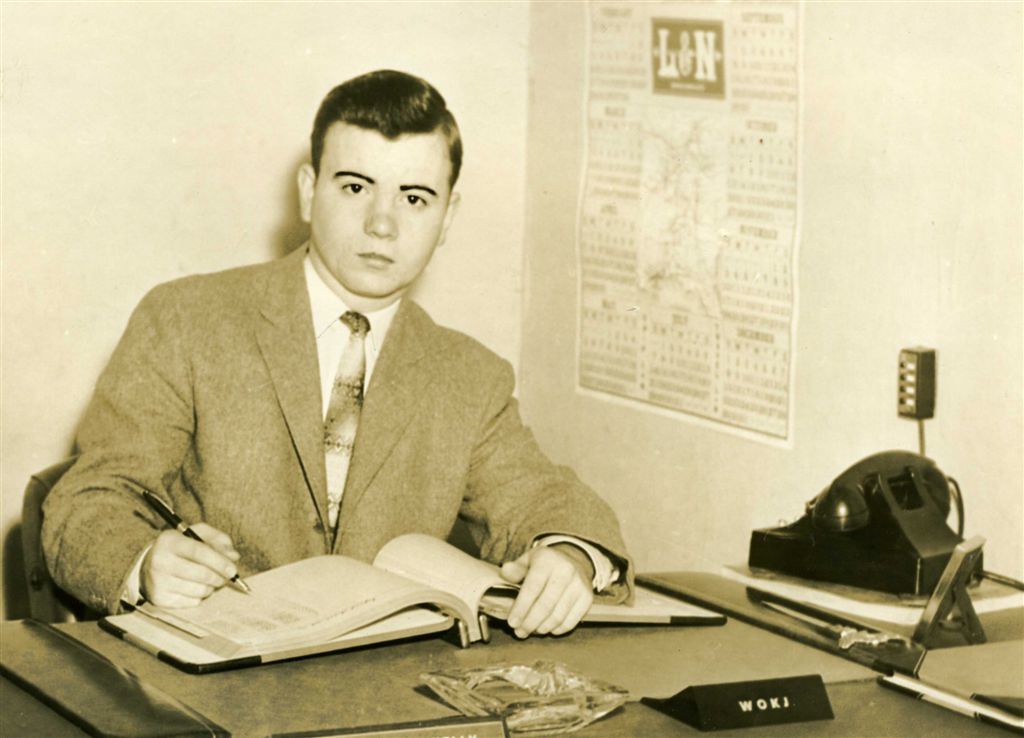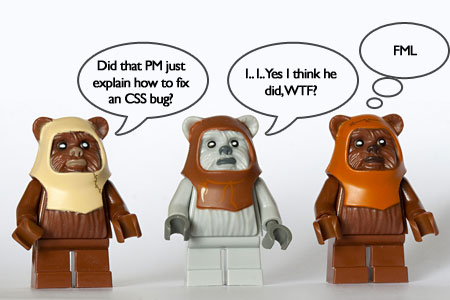I’m writing this article in response to a common question I get asked… what exactly does make a great Digital Project Manager?
I believe the reasons I get asked this so often is because the existing articles out there that define what makes a great project manager don’t include the ‘digital’ part and either focus on I.T. project management or just project management in general.

However, it should be noted that many of the points made in these articles are very relevant to digital project management, for example, The 12 Attributes of an Effective Project Manager.
For those who are just too damn busy (lazy) to click the link and read, it lists a few attributes that a good project manager should ideally have, e.g.:
- Skill in negotiating win-win solutions between stakeholders and the project team
- Staying calm particularly during turbulent times
- Desire to hold the team accountable for deliverables
- Ability to earn the respect of the team regardless of reporting relationships
It should go without saying that these attributes are as applicable to someone managing the construction of a carbon freezing unit as a digital project, or put another way, GreatDigitalProjectManager extends GreatProjectManager.
Here are a few more similar articles that are worth a read:
- Characteristics of Great Project Managers
- How to Be a Good Project Manager
- The Best Project Manager in the World
But here lies the problem; we are awash with articles explaining what makes a great project manager, but what makes a great DIGITAL Project Manager?
Is it the unique ability to be able to annoy clients, their Managing Directors, design and development teams in one day? Hadouken!!!!

Or perhaps it’s their powerful skills in having chronic OCD but somehow avoiding medical diagnosis for their entire life?

Ok ok, while these are things all Digital Project Managers are proud of; be it secretly or openly, let’s get serious on what really makes a great Digital Project Manager…
Digital project management experience
Of course “experience” is something, that if you have it, makes you a more wise and skilled person in anything and digital project management is no different. But the key distinction here is between digital project management experience and experience working on digital projects.
Often you’ll find all sorts of different people from different backgrounds running digital projects, from designers and developers to digital account managers and I.T. managers, but while all of these people will no doubt manage to deliver the website or web application, more often than not, there are noticeable lapses in certain areas that cause digital project difficulties and these lapses are where an experienced digital project manager really shows their value.
Often the lapses will be in the areas that are the weaker area of the person managing, for example, often a digital account manager will be great at building a rapport with the client, but will commit to unrealistic deadlines or miss functionality out of the scoping stage.
A designer will often ensure the design looks world-class but fail to realise that by delivering a world-class design with a zillion overlays and cool UI features, the entire project budget will be blown on front-end development.
An experienced Digital Project Manager will be aware of these common “gotchas” and direct the project accordingly, making sure all aspects of the project have balanced attention and are aligned with the scope, budget and timelines while maintaining a level of quality both agency and client are happy with.
Hands-on digital experience
As with most project management positions, although definitely not always the case, it’s often a huge advantage if you have hands-on experience of the disciplines involved in the project – the same is true for digital projects.
I’m always in awe of digital project managers who deliver great solutions having never used paths to cut something out in Photoshop, turned a PSD into a HTML template or created a Hello World script in a server-side language.
The fact of the matter is these Digital Project Managers are out there and doing a fine job but I genuinely believe a Digital Project Manager with hands-on practical experience in the disciplines required in digital projects is a valuable aid for the reasons Luc Richard gives:
To be an effective project manager, you must be capable of designing and developing the solution yourself. Otherwise, you have two options. You can either (a) ask others to make decisions for you, or (b) simply pretend you know what you’re talking about. In the first case, you’re a project co-ordinator. In the second case, you’re a project mangler.
Must Project Managers Be Technically Savvy?
However while I don’t agree that to be a great Digital Project Manager you need to be capable of delivering the solution alone, I do agree that without a good grounding in all the digital project’s disciplines you really are at the mercy of your team when it comes to estimating effort, scheduling tasks, assessing risks and generally making sure everything goes smoothly by being able to anticipate and avoid problems.
Plus, the harsh truth is, having hands-on experience allows you to spot when any of the production team are just flat out slacking or spinning a yarn about why problems are occurring…
Come on, I dare any Digital Project Manager out there to deny that they get a sense of smug joy when they teach someone on the production team something about Photoshop or code, or laugh at the ridiculously long estimate you’re given to change a banner – oh their little faces, they look like startled little Ewoks :-)
But, in the defence of all production teams out there, they do a really hard job and having to design or code under pressure really is a tough thing. This is another reason why a great Digital Project Manager will have spent their time on the production side of things and really be understanding and empathetic with their team in times of stress and woe, and in some cases even fight the corner of the production team to management and clients when unrealistic schedules are being proposed.
But it should be said, if you’ve found yourself running digital projects, having come from a position of little hands-on experience, such as account management, don’t remain ignorant to what these guys do, I believe it’s your duty to open up Photoshop, HTML editor and get Apache, MySQL and PHP running and just start learning the absolute basics.
I’m not talking about designing a website or developing the operating system for the Death Star (I can here the Apple and Linux groupies shouting it would be a Windows-based system of course, tut), but just learn enough so that you can talk to your team on their level and also explain to clients how things work, trust me, it will benefit you massively in the long run and it honestly isn’t that hard, you just need the drive and motivation to want to better yourself.
Ability to communicate with everyone
With any project management role, a key skill is the ability to be able to effectively communicate with everyone involved in the digital project knowledgeably and on their level.
While hands-on experience will arm you with the knowledge to talk to designers and developers with confidence, communicating with suppliers, your superiors and clients is a whole different ball game – a great Digital Project Manager has to be a chameleon!
As most seasoned Digital Project Managers out there know, when talking to designers or developers you often have to adapt your tone in order to communicate effectively.
Warning! Obscene stereotyping commencing… Please recall all the comments you’ve made about PMs in general and then continue reading, humbled and ashamed.
For example, when talking to designers you have to appreciate that most are extremely territorial about their work and so you have to respect that and frame your questions and feedback accordingly, because the last thing you want on your digital project team is a designer who doesn’t feel trusted by you and has been reduced to a pixel pusher.
With developers it’s slightly different; these guys tend to want things explained in logical straightforward steps. If you start to try and tell them how to code or insist they “code something quick and dirty” they will immediately hate you and fantasise about watching you in a fight to the death with the Rancor monster (probably while a naked Princess Lea sits by their side)
However, these personality traits are not negatives, everyone is different and these traits are actually part of the magical formula that makes a great designer or developer. Part of working a team is learning how to work with other people that are very different to you.
But while speaking to designers and developers you can have little geeky laughs about Comic Sans and drop shadows, or how bad that code is due to all its embedded CSS and JavaScript, but when you hit the meeting room with your bosses or clients a Digital Project Manager has to change their skin again.
Your boss generally just wants to hear how things are going and if there are any barriers they can help remove for you. Although they have a genuine interest in the quality of design or code being produced, they are busy people and tend to want to be told about results and the impact on the business.
Likewise with clients you have to shift again and focus on what the project, and each decision made during its lifecycle, brings to the table in terms of achieving the business aims and ROI rather than hearing how the CSS3 you’ve used is ground breaking stuff.

Being able to adapt to, and blend into, each very different environment at the flick of a switch is something a great Digital Project Manager can do and often where average ones tend to fall a little short.
In summary
I believe what separates a great Digital Project Manager from an average one is the ability to look at a digital project and be able to envisage the whole solution in its entirety from an early stage and with few gaps, thus being able to manage the project’s risks and maintain momentum.
They’ll be able to understand the creative requirements almost as well as a designer, the technical requirements almost as well as a developer and communicate both in a way that results in clear tasks that need to be completed and the perfect solution being delivered, all while not being sniggered at for pretending to play at being knowledgeable in these areas but instead gaining respect.
Perhaps some of the technology requirements are out of the Digital Project Manager’s comfort zone; well the great ones will go home, dig in and do a bit of research until they feel comfortable they have grasped the basics.
A great Digital Project Manager should be able to produce good project plans, schedules, sitemaps, wireframes and functional specifications that production teams can work from with ease, rather than loose, fuzzy, vague and ambiguous documents that are recipes for disaster and all too commonly produced by people just wanting to pass the work onto someone else.
They’ll also be able to keep production teams motivated and focussed on producing quality work while taking all of the crap and stress from all directions in an attempt to shield them and let them work their magic unimpeded by project politics.
And finally a great Digital Project Manager will be able to talk to everyone involved on their level and in their language which leaves everyone in no doubt of the expectations and objectives of the project.
Am I a great Digital Project Manager? No, but I strive to be and so should you. Is the above a complete list of everything that separates great Digital Project Managers from the not so great? No, but it’s a bloody good start.
What do you think separates a great Digital Project Manager from an average one?
Related reading:










Great article Sam.
My boss requested that I read it (I have your site RSS bookmarked anyhow)…
I always find your articles to be very informative and loaded with useful information…
The frequent Starwars images always make me laugh too. :D
Thanks Sam :)
:P ^^ Boss. :D
@Nick @Jesse, thanks, but I wouldn’t encourage forced reading of my blog, I think it may break the Geneva Convention or something ;-)
Great article, Sam!
I always find myself talking about how there is a huge difference between a “web” project manager and any other type of project manager. I think you did a really nice job of breaking our discipline down–it’s important to know that we follow a separate process and can’t always subscribe to IT methodologies.Thanks!
I’ve worked as a PM in the fim industry where it doesn’t pay to know the granular stuff. However, I don’t think the same can be said of the web industry. As you’ve mentioned in your summary, I think a great web PM needs to know how to communicate with production on their level, and translate across teams/stakeholders – and I couldn’t do that without having started out in the trenches myself.
PS: Loving the ewok picture!
This is a really great piece. Thanks so much for writing it.
I think one of the things that makes web project management so very tricky is the constantly shifting landscape as far as technologies are concerned, and it’s my experience that very few projects are alike (at least on the surface). Having a fundamental understanding of the technologies (from both a design and dev perspective) is invaluable in sussing out where the real risks in a project are and also in helping facilitate problem solving in your team when they’re stuck or a glitch pops up. Knowing enough about underlying structures to be able to say, “oh but isn’t this bug kind of like that thing we had occur 4 months ago on project X?” can really move a project along. Now of course it’s the design & dev teams responsibility to suggest that stuff too (and I’m fortunate to work with folks who do), but often when you’re in the thick of it, it’s really hard to see big picture to problem solve. A great web PM will be able to take the bigger picture view to assist with problem solving and team facilitation. I could go on (clearly), but really you did a great job of getting to the crux of what makes an awesome web PM.
Great article! Very helpful. Thanks, Sam.
@Brett, thanks! So true and I just can’t work out why there aren’t as many posts saying exactly that!
@Cola, defintely, production level communication is absolutely vital in my opinion, but as I said, I do some Web PMs who coudn’t code a HTML page – they’re amazing in my eyes!
@Emira, that’s a really great point I failed to mention, the ability to see the bigger business picture, both for your own company and the client’s. Production teams aren’t always great at that, then again, the stuff they produce is magic to me so more power to them for being amazing and leaving a gap that means we can earn a salary doing something we love :)
@Alex, you’re very welcome, glad you like it!
Interesting article as ever.
I’d like to play devil’s advocate if I may, and suggest it may be harmful suggesting that web project management is different that it’s possible (if you haven’t already tried) to transfer your web project management skills to another area, and equally a non-web pm can manage just as well on your project if they have the right management skills.
For instance you suggest that knowing the programmers and designers IDEs is an advantage, stops the wool being pulled over your eyes, etc. But doesn’t this highlight bigger issues if this is happening??! Such as what talent are you recruiting, and are you trying hard enough to ensure you are benchmarking that talent? For instance I love getting remote workers on Elance (rentacoder, guru.com whatever) and am amazed now that I have a ruck of people of Skype how vastly different people’s estimates are on jobs. Largely due to how refined a job is. These specialisations within skillsets have a huge influence. For instance I had a quote for a data migration project of two weeks from a chap that was really good at mySQL, but I ended up having it done by this Ukrainian nutter who opened the whole database in a textpad and fired regex commands at it for ten hours… and it was ported tuple for tuple. Surely even a great PM can’t know Flash, Java, .NET, Silverlight etc.? and would be better off with the simple project principle of:
getting multiple quotes!?
Maybe that’s not so politically viable in an organisation with perm workers….
@Myles, two interesting points you raise there. I do agree that you can transfer web project management skills across industries given that although it’s web project management, it’s still project management, and as I’ve mentioned before, I know of several digital account managers and web project managers who don’t have too much web knowledge and they do a great a job – I don’t know how and I’m in awe of them!
As for developers pulling the wool over our eyes… I didn’t mean that by knowing the IDE minimises that, more having enough hands-on experience to know what task A involves so that you have a pretty good idea in your head the range of time it could / should take – that’s where industry specific knowledge is valuable as a web project manager – but…
You’re absolutely right, having to supervise and keep an eye on estimates is most defintely aligned to the quality of your team. If you have a great team throughout, the estimations should be more accurate and trust levels higher – but in my experience, even the most talented and well meaning developers have vast variations in estimates for the same job and so again it pays as a web project manager to have that instinct to know whether you need to cater for it in the estimations you submit to the schedule and budget.
When it comes to technologies you just have no idea about, defintely, you’re at the mercy of the estimator and getting multiple quotes is a great way to filter out the nutters on eLance.
Really good points Myles!
Hi Sam,
Fantastic post! I’m currently writing up some recruitment guidelines for a Web Project Manager role on 5-6 person teams delivering pro bono web design services to nonprofits. Because of the volume we recruit, we don’t have the luxury of only using the type of people you describe, who have solid web project management experience. What are the most critical line items you’d look for when screening a resume of a potential web project manager? What could you simply not live without?
Thanks!
@Natasha, I think I’d look for a real passion for the web with some evidence that they’re not just looking for a 9-5 job but go home and genuinely enjoy reading and learning. I’d also look for attention to detail and organisational attributes.
If someone doesn’t necessarily have web project management experience, but understands commercial realities, has a great deal of pride and passion and is just one of those people who won’t rest till they’ve completed a job then that would be a good start!
As I said, I’ve met plenty of people managing web projects who couldn’t code a single line of HTML. But they’re passionate about doing well, have pride in their work and are smart enough to know how to manage people.
This article is really refreshing, thank you.
I have a background in web design and I’ve found that a lot of companies seem nervous when I tell them about it. They often ask me if I want to go back into design even though I’ve had almost 4 years of solid PM experience in the digital space.
Why would companies feel that being in the trenches would be a disadvantage to the role?
@cheyes, thanks :)
I doubt it’s that they worry you’ve have experience, as we both know it’s a huge advantage! What they’re probably trying to esatblish is two things; if there is a possibility you’ll want to leave the PM role and leave them, or if you may start to get a little too involved in the design process of web projects rather than leaving it to the experts.
A lot of web project managers with production experience, myself included, will often spend a little too much time sitting with a designer or developer when they should be project managing…
So, would you be saying that taking a PMI course would be a waste of my time since I am a web PM?
@Michael, not at all, but also not necessary to be a great web project manager. It will definitely broaden your skills, open up possible opportunities in the future (as any formal qualification does) and also strengthen up some skills you already have… but I genuinely believe it’s not necessary to be a great one.
TSB: Thanks for your insight. Your Post was a great read.
To me what you’re describing here is the ability to understand and communicate the project needs right from the overall big picture business aims to the detail of the implementation. And that’s definitely what makes a really great project manager IMO.
@John, yep that’s pretty much it. Sounds simple and a no-brainer, but so many Web Project Managers out there can do one and not the other, which is fine, but what isn’t fine is they don’t make attempts to develop their knowledge so they can do both…
I’m a web project manager and reading this article made me love my job again. Great comments too. Put my day to day work life into perspective again. Thank you!!!
@Rachel, well… you’re VERY welcome! You are NOT alone :)
Great article! I’ve been a project coordinator, a product manager, a project manager that works on web related projects but every time I apply to a position as a web project manager at an agency I’m met with the ‘Thanks but no Thanks, you’re too inexperienced’ rejection. Any advice on how to show potential employers that you would be a great web project manager?
@Mandi, Thank you very much for the kind words. Without being able to see your CV it’s difficult to tell, but often when I hear a similar story it’s because the things you’ve mostly managed are print / non-digital and the employer doesn’t see enough on the CV.
My advice would be to take a look at your CV and start angling it more towards the digital things you’ve worked on. Add more detail to those parts and ease off details on not so digital things.
– Head the CV up with Name – Digital Project Manager.
– List the technology areas you’re familiar with.
– Add URLs if digital things you’ve worked on with descriptions.
– Try writing some guest posts on blogs (like mine) to include in your CV.
– Go to some digital related events and meet-ups. Add them to your CV as a regular attender.
– Look for digital specific course and fund yourself to do them, anything from general digital PM to doing something like ScrumMaster training.
If all else fails, just join a digital specific agency as anything, then settle in and gradually look for opportunities to take on more project management duties.
Is there a web project management course you could recommend or would you suggest the full PMP designation and get hands on experience?
@Krystal, it really depends on you, your background and what your plans are. If you can give me a brief overview here then I’d be happy to try and advise :)
This is great article. Though i am all in one, as PM, Web Designer & Developer. Ive always learned from my experience. But this is really helpful..